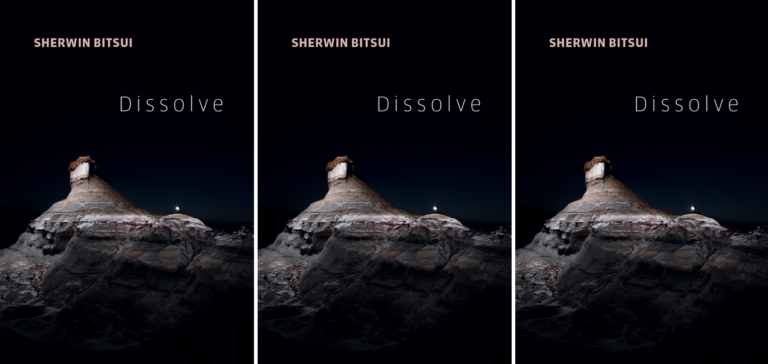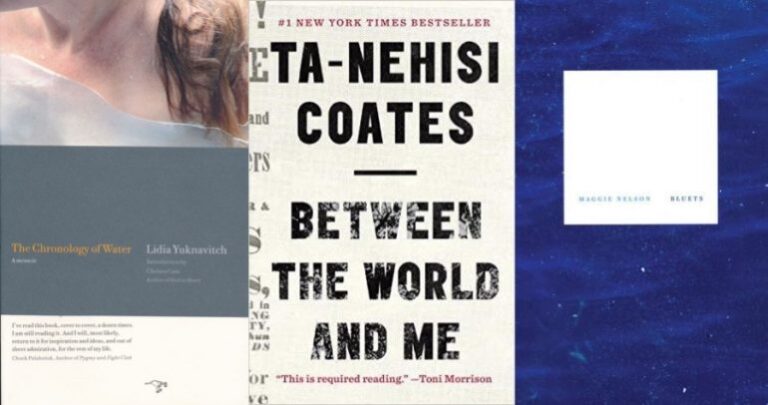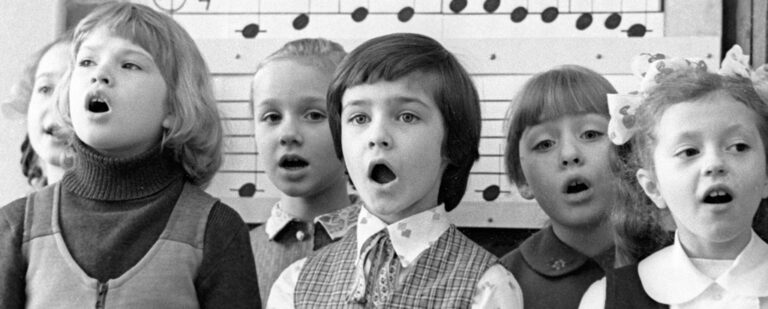Conversations about Conversations & Connections Conference, Sept. 22, 2012
Haven’t heard about the Conversations and Connections Conference yet? I got the inside scoop on this writer’s conference, which will be held on September 22, 2012 in Philadelphia, from Dave Housley and Susan Muaddi-Darraj, co-founders of the conference and editors at Barrelhouse. If you are interested in speed dating [with editors], Stewart O’Nan, and connecting with other writers over boxed wine, read on…
Andrea Martucci: Can you tell me about the history of the conference? Who started it, and why was it started?
Dave Housley: Susan [Muaddi-Darraj] and I were sitting next to each other at this other literary festival/bookfair thing. It wasn’t a very good one, or at least, Susan and I weren’t having a very good time. We didn’t know each other. At the time, Susan was the managing editor of the Baltimore Review. I think the first thing we said to each other was something like, “This sucks, doesn’t it?”
Susan Muaddi-Darraj: I think we actually said, “What a lame conference.”
DH: So we spent a fair part of the day talking about how this festival/bookfair sucked, and how we could do something better, and I remember that we had pretty much all day there next to each other, so by the time we were packing up our books, we were actually planning to try to put on a writer’s conference. One of us pulled in Julie Wakeman-Linn from the Potomac Review and we just kind of made it up as we went along.
SMD: We really talked a lot about designing a conference that would be useful to writers, where they would leave having made contacts with editors and writers, and where they would feel more connected to their local literary scene – knowing the journals and presses right in their region. That’s where the name of the conference came in: Conversations and Connections: Practical Advice on Getting Published (emphasis on the word “practical” – we didn’t want a conference where people just talk a whole lot of theory that isn’t very helpful to anyone).
AM: What have you done in the past; what’s new?
DH: The conference has definitely evolved. What’s happened is two things: one is that we’ve grown into what we think is a very workable and effective schedule/program for the kind of space we’re in and the kind of people who generally attend the conference, and the other is that we’ve figured out how to hold a conference. The first year, we were just making it up as we went along. I remember seeing a huge line of people coming out the door and thinking, oh yeah, there’s probably a better way to get these badges and packets handed off to everybody. There’s a whole lot of logistics to manage, and most of them have nothing to do with writing or editing.
So the conference schedule is that we do two sessions of panels and/or craft workshops in the morning, then we break for lunch, and also do “speed dating with editors” at the same time.
SMD: The “speed dating with the editors” segment is really the jewel in the crown here. It’s one of the things we designed of which I’m really proud. It’s a “speed dating” setup where writers are paired with editors of local journals/presses by genre – so we pair a poet with a poetry editor, and the poet might show the editor a couple of poems, get some feedback, or just chat about what kind of poetry that journal is looking for. It’s a casual conversation – ten minutes. Some people love it so much that they buy more tickets – one comes free with your registration – and go though the line several times to meet different editors.
DH: We leave more than two hours for all that, so we think that’s enough time to do both things. Then we have the keynote, and then one more panel/workshop session. That’s the general format. In the past, we’ve had some great speakers, like Sam Lipsyte, Steve Almond, and Mary Gaitskill. We’re really excited to have Stewart O’ Nan as the keynote in Philly.
This year we’re adding in Boxed Wine Happy hour, which will be sponsored by Submittable. This is, well, it’s just kind of a fun idea, first of all, but it’s also in response to one of the comments we’ve heard a few times about the DC conference, which is that for a conference called “Conversations and Connections,” our schedule doesn’t leave a lot of time for socializing. We’re writers, of course, so there’s a very healthy post-conference happy hour, but this strikes me as a legitimate concern. In DC, our hands are tied a bit because we need to be out of the buildings at a prescribed time (the DC conference is sponsored/hosted by Johns Hopkins and they are wonderful partners and their support quite literally makes the conference possible, so I’m not complaining by any means – this is just how it is). Philadelphia’s University of the Arts, which is sponsoring/hosting the Philly conference, is able to give us a little more time at the end of the day, so of course: Boxed Wine Happy Hour.
AM: What will participants get/learn if they go?
DH: It’s a great deal! On the “get” side, registration is $65 and for that, participants get the full conference, including the three panel/workshop sessions, the keynote by Stewart O’Nan, one ticket to Speed Dating with Editors, one book (they can choose from four), a subscription to a literary magazine, and Boxed Wine Happy Hour (for those 21 and over).
SMD: Compare that to some of the fees people pay for other writers’ conferences — $75, $110, and I’ve even seen $200 for a one-day event in which you don’t really leave with anything but a bunch of notes you took during the panels.
DH: Here’s where the money goes: we pay Stewart O’ Nan to be there. Then for each featured book chosen, the presses (all are small press books) get paid. The literary magazines get paid for each subscription attendees choose. For each speed date, the press or lit mag gets $5. Barrelhouse makes money off this conference, or we will if enough people come. It’s one way, for instance, that we can avoid even thinking about charging submission fees, and it pays for the printing of the magazine (or, most of it). We think it’s a great model of something that works for everybody, and a good portion of the proceeds go directly back to the small presses and lit mags who participate.
SMD: As far as what folks will learn, we have a selection of panels as well as craft lectures, so we focus on big picture issues to the details of the craft.
DH: We try to make sure there’s a wide range of topics. This year we have everything from general “advice from editors” panels to LGBT writing to sports and literature and lots of stuff in between. We make sure that each session includes something for fiction writers, poets, and nonfiction people, as well. We hope that, no matter where you are in your writing, you’ll be able to apply what you hear directly to your own work. That’s the goal.
AM: Which presses/journals will have editors available for speed dating? Has anyone gone steady or gotten hitched after a speed dating session?
DH: Artichoke Haircut, Barrelhouse, the Believer, Big Lucks, Cobalt, The Common, Eyeshot, Gigantic Sequins, Northville Review, Painted Bride Quarterly, Philadelphia Stories, Potomac Review, StoryQuarterly, Three Quarters Review, TJ Eckleberg Review. And of course, Ploughshares is participating remotely, which is awesome, and thank you. There will likely be more as we get closer to the conference.
Yes, people have gone all the way! Barrelhouse actually published a story, “After the Zombies Came” by Matt Willmott, which we saw first at speed dating. Last year there was a young woman who had a story accepted on the spot. I think it was by Big Lucks, but I’m not positive. She was glowing. It was very cool.
SMD: We had some poetry editors take some poems on the spot. And we also had editors say, “This isn’t for us, but…” and they suggested another journal who would be interested in it. What is that… second base?
AM: What is one panel that you’re super excited about? Like if you could only go to one, which one would you not miss?
DH: I think everybody would answer this differently. I think “How Did They Get Up There? Authors on Their First Books and How They Got Them Published,” which is a panel discussion with Katherine Hill, Courtney Elizabeth Mauk, Elise Juska, and Laura van den Berg, looks really great. Also, Randall Brown’s craft session on flash fiction. That’s one where I feel like people will be able to literally walk out of the session and write better flash. It’s hard to pick. There’s one about homosexuality’s influence on today’s writing, led by Brad Windhauser. Our poetry editor is really excited about the poetry panels. After the DC version of “Mostly True: Nonfiction, Fiction, and the Line Between,” somebody told me they wanted to adopt Tom McAlllister, who is doing that panel again in Philly.
SMD: The editors of Painted Bride Quarterly are doing a panel on the mentoring that goes on between editors and writers. And there’s a really neat panel entitled “Freelancing is Not Writing for Free: How to Make a Living” that I think a lot of people will find useful.
AM: What kind of boxed wine will participants enjoy during the Happy Hour?
DH: My personal favorite is the one that just says “Seven” and has these kind of artistic bulls on the container. Maybe it’s called “Seven Bulls?” No, after a quick check it looks like it’s just called “Seven.” It seems unlikely you’d name a wine the same thing as the Gwyneth Paltrow’s-head-in-a-box movie, but there you have it. I actually picture a bit of a Boxed Wine Tasting, with many different boxes to choose from. Submittable is sponsoring Boxed Wine Happy Hour, and they’re kicking in $150, so Barrelhouse may have to buck up a little in order to have the kind of Boxed Wine Smorgasbord that’s in my head. I live in a college town, and last week I saw a kid literally carrying a box full of boxes of wine down the street, and I thought, I’m going kick your ass, kid, on September 22.
AM: What makes this conference unique, and why should people who are sitting on the fence throw caution to the wind and register immediately?
SMD: Because they should know they will be attending a conference that is designed by writers and editors, that celebrates writing, that is fashioned to be helpful and practical.
DH: We really try to be open and inclusive and fun. What’s the point of getting together if we’re going to be all gloom and doom and just grind it out for a day? Some people are nervous about going to a writer’s conference and we try to make sure there’s a comfort level coming in (I send a lot of preparatory emails) and that there’s a friendly, generous atmosphere throughout every element of the conference.
We really try to make sure that each panel/workshop session is useful. We don’t want four people sitting around talking about negotiating the foreign movie rights to your novel. We want them talking about things that people will be able to apply to their work the next day.
As I said before, this conference directly supports the indie lit community. Oh man, that reminds me: Chris Newgent is even coming in from Indy to run his Vouched table, and to manage the conference book table, as well. So we’re really trying to make this a thing that represents the best of what the lit mags and small presses are doing, and it is a thing that puts money directly back into those places, which of course, writers need to get their work out there. It’s such a great, supportive community, and I hope this conference reflects that.
And of course, boxed wine happy hour.
Visit the website and register here.
====================================
Dave Housley’s second collection of short fiction, “If I Knew the Way, I Would Take You Home,” will be released by Dzanc Books in 2014. His work has appeared in the Collagist, Hobart, Nerve, Quarterly West, and some other places. He’s one of the founding editors and fiction editors and all-around do-stuff people at Barrelhouse, and one of the founders of the Conversations and Connections writer’s conference, which is held in DC and (soon) Philadelphia.
Susan Muaddi Darraj’s short story collection, The Inheritance of Exile, was a finalist in the AWP Book Awards Series and the John Gardener Prize. It was selected in 2011 by the prestigious Arabic Book Program by the US Department of State, translated into Arabic, and distributed in the Middle East. One of the founders of Conversations & Connections, she is the newest member of the Barrelhouse editorial board.


